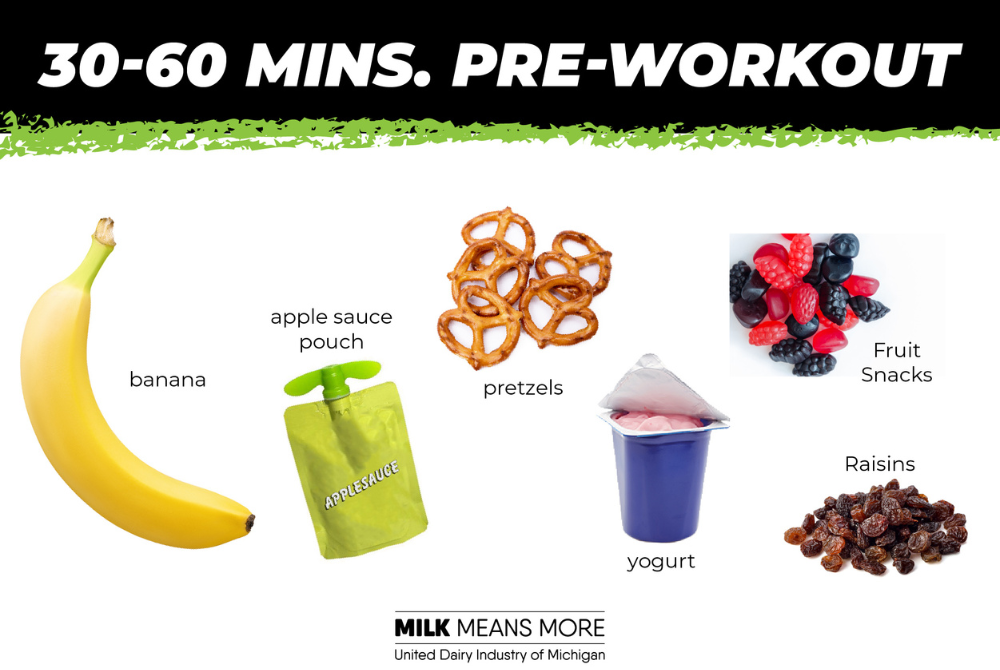
Health Tip: Game Day Nutrition
September 24, 2019
 By Nick Parkinson, M.Ed., ATC, AT
By Nick Parkinson, M.Ed., ATC, AT
Henry Ford Health System
Parents, you know how important it is for your student athlete to be well-rested, well-fueled and well-hydrated. Just like a car needs gas, their bodies needs food.
So, whether they’re doing an intense workout during practice or competing in a strenuous game, it’s crucial for them to be properly hydrated and nourished, both before and after, so they can perform their best and recover properly.
Pre-Training Nutrition
The most important part of pre-training nutrition is making sure your child’s food choices give them the healthy energy boost they need for the type of physical activity they’re engaged in, and not a just quick sugar rush.
Carbohydrates may have a bad reputation, but they’re actually the body’s main source of energy. Before a workout, a healthy snack is a great idea. The trick is to eat far enough in advance to be able to digest before being active.
To ensure proper digestion while fueling up, follow these tips:
If there’s less than two hours until go time, try a quick snack like a banana, apple, or a small bowl of Greek yogurt with granola and fruit.
Have a little time to spare? You could try a brown rice bowl with sautéed vegetables or a cup of oatmeal topped with fruit.
Either way, carbs will fuel the body so your child can perform at his or her peak.
Post-Training Nutrition
After an intense workout or game, your child’s body is depleted of its nutrients. It needs to be recharged, which means eating carbs, fats and proteins. The word “fats” tends to scare people, but they’re actually a crucial component in building muscle and recovering.
After an event where your athlete worked out hard, encourage your child to eat something that includes multiples food groups. Try something simple like avocado or peanut butter toast, hummus with veggies and whole-wheat pita, or even a smoothie.
Hydration No Matter What
Regardless of the intensity of the workout, the most important thing is to keep your kid hydrated before, during and after.
It is recommended to top off water intake approximately two hours before any physical activity. Then, athletes should continue hydrating throughout. And while there are many sports drinks to choose from, the healthiest option is water. If you want to add some fun (and natural) flavors to them, try infusing with fruits and/or veggies.
Want to learn more? Henry Ford Health System sports medicine experts are treating the whole athlete, in a whole new way. From nutrition to neurology, and from injury prevention to treatment of sports-related conditions, they can give your athlete a unique game plan.
Visit henryford.com/sports or call (313) 972-4216 for an appointment within 24 business hours.

Coach's Guide to Nutrition: Pre-Workout Snacks
September 10, 2024
Heading into practice or a game under-fueled may take away from athlete performance. Encourage student-athletes to not only eat regularly throughout the day, but to have a small, carbohydrate-focused snack about 30-60 minutes before activity. This will top off their energy stores so they are ready to hit the field.
Pre-workout snacks don’t have to be complicated. Choose easy, high-carb snacks that can be stored safely in a gym bag.
Snacking can be detrimental when done out of boredom or in place of regular, balanced meals. But, for an athlete, healthy snacks can aid performance and recovery.
In planning to eat every 3-4 hours, a mid-morning snack may be ideal. Having a snack in the hour or two before practice and in the ‘window of opportunity’ following practice can help maintain energy levels and ensure proper recovery.
Work with your athletes to create simple snacks that are easy to transport. Encourage athletes to include a carb and protein in each snack when possible. Fresh fruit, granola bars with 8-10 grams of protein, or trail mix that includes nuts/seeds and dried fruit are easy to keep in a gym bag and relatively affordable. A small cooler with an ice pack is a great way to keep snacks cold and fresh.
Snacks are important to maintain energy between meals, before exercise and after workouts. Snacks before and after exercise help performance as well as aid optimal recovery. Try to include carbs and protein in every snack.
Information above is excerpted from UDIM’s A Coach’s Guide to Nutrition.


